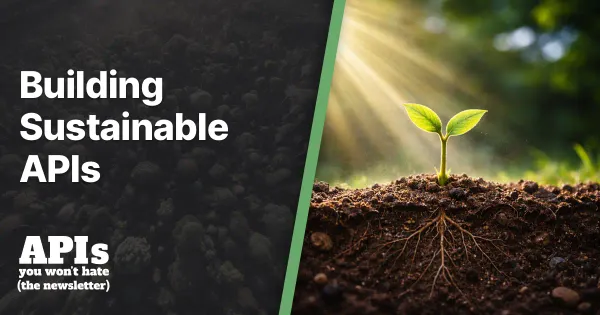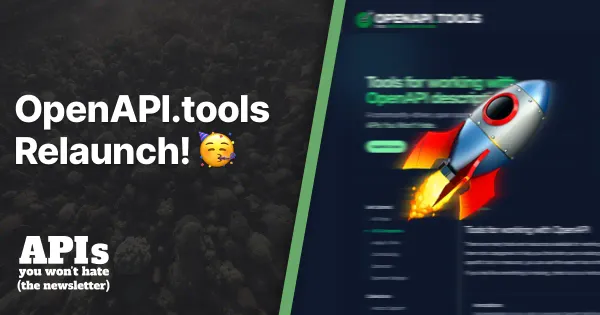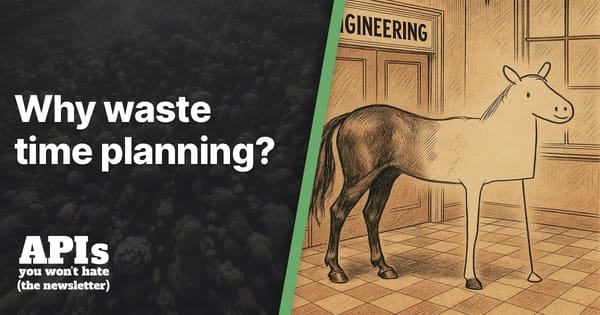Back To Basics
In this issue of the newsletter, API basics and pagination, Git's superpowers, Arrazo, and fuzzing JSON for security audits.
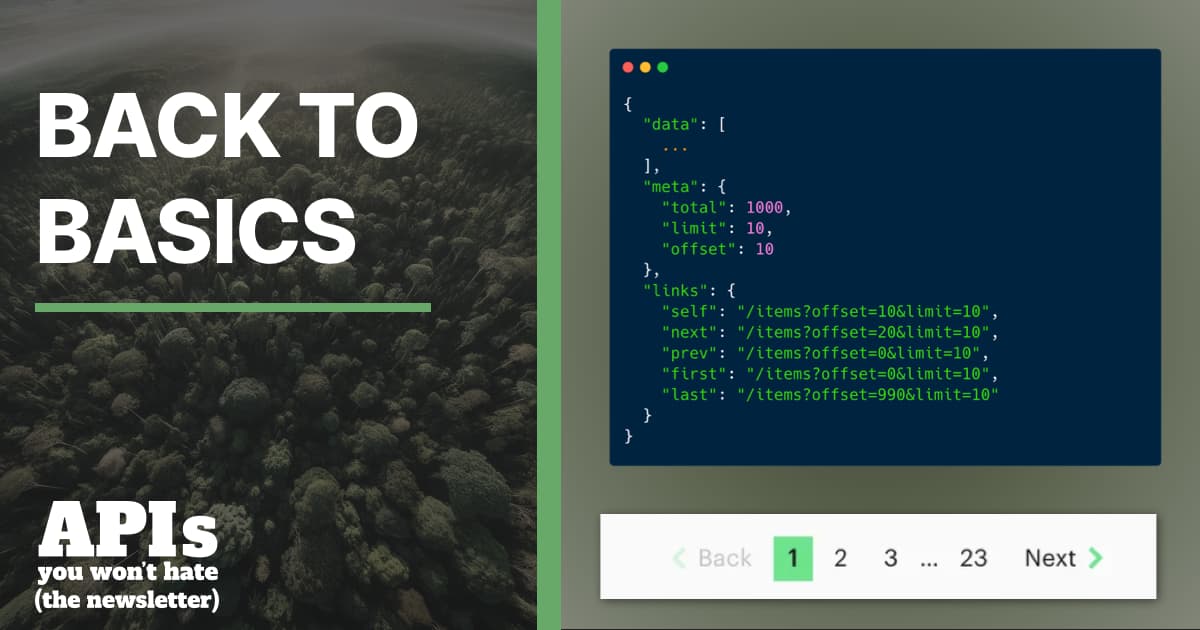
There is nothing better than a clear and descriptive OpenAPI spec and a well designed API. Sometimes it easy to forget that good APIs allow others to build brilliant applications. Some of the best UI interactions for end users is only possible when we support them with a great API. Phil takes us back to basics in this issue, with a post on supporting pagination. Phil gives us a breakdown of different approaches and their tradeoffs.
Always remember: a good API leads to great UI.
-- Alexander
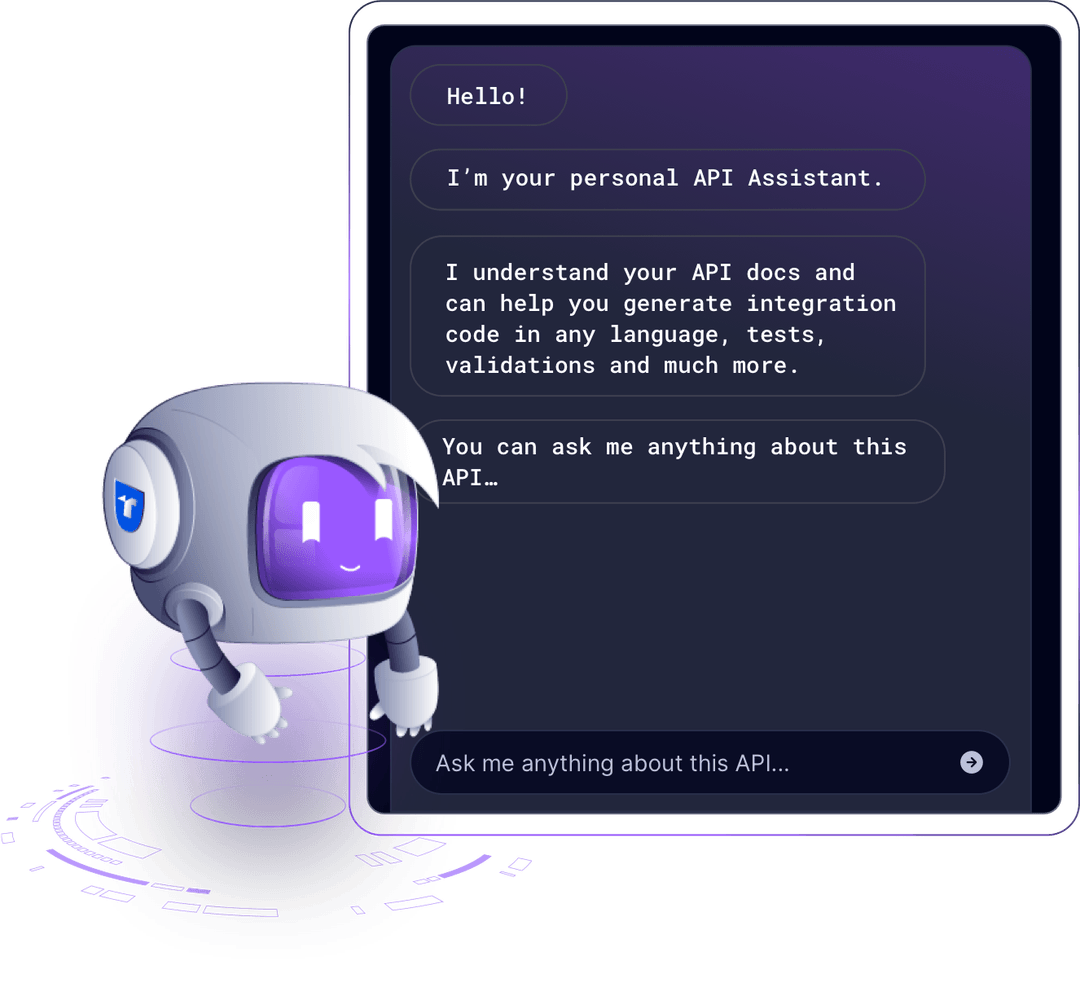
Alfred AI: The Ultimate API Assistant
Alfred AI is a cutting-edge, AI-powered assistant designed to revolutionize API documentation, discoverability, and integration. Alfred automates manual workflows, for faster API integrations and a superior developer experience.
Discover AlfredThe API Round-Up
The perks of a good OpenAPI spec
Val Town talks us through their transition from ExpressJS to Fastify and how it allowed them to generate their OpenAPI spec from their code. The fun doesn't stop there. Thanks to their new spec, they improved their documentation, generated a new TypeScript SDK and helped LLMs use their APIs.
From SwaggerHub to Bump.sh, unlocking the power of Git
Phil walks you through moving your OpenAPI descriptions out of Swagger Hub, freeing yourself from the walled garden. Phil talks about the benefits of Git-based control flow and some of the fantastic tools from Bump.sh.
Introducing the Arazzo specification
OpenAPI is constantly growing and something new has arrived the Arazzo Specification. This new specification helps API providers describe complex, multistep sequences of API calls. Find out more in the latest video of OpenAPI Hangouts.
Generate an OpenAPI Spec with Pydantic
Python's most popular validation library has a superpower that often flies under the radar: it can be used to generate OpenAPI Specs. Check out this article for documentation on Pydantic's configurable, straightforward approach.
Generating HTTP clients in Spring Boot
When I had to pick up Spring Boot and Java, finding up-to-date, modern tutorials was hard. Maciej gives an overview of some OpenAPI spec tools for Spring Boot and a walkthrough of how he generated HTTP clients from an OpenAPI spec.
Open Source API Firewall
I stumbled across a nifty little tool this week: an API Firewall with request and response validation based on OpenAPI and GraphQL schemas. It is designed to protect API endpoints in cloud-native environments. It is also written in GO and is definitely worth checking out.
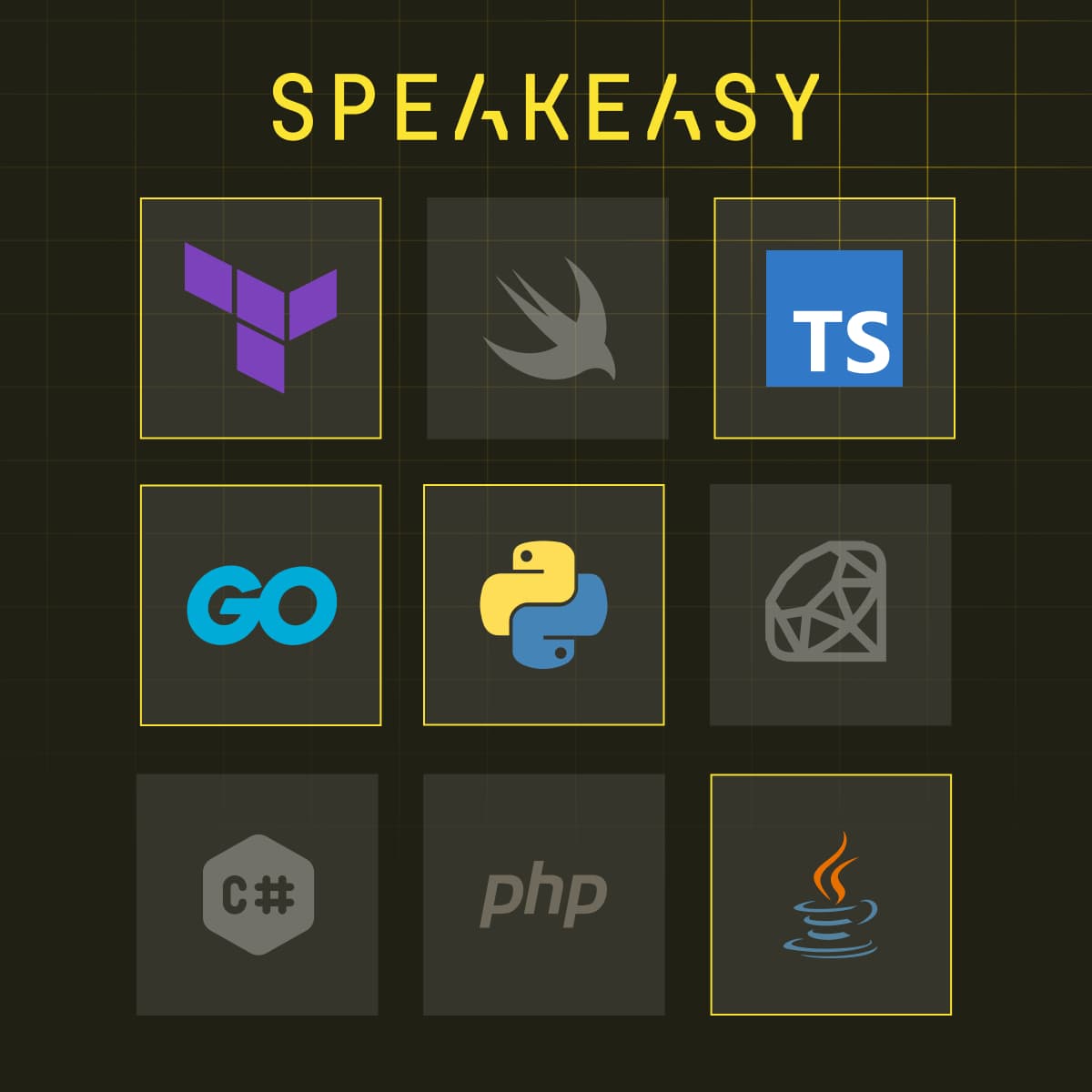
Speakeasy: Build APIs Your Users Love
Your API deserves a great developer experience. Get one by using Speakeasy to generate idiomatic, type-safe SDKs from OpenAPI
Start GeneratingAPIs You Won't Hate
The latest from the team at API's You Won't Hate.
API Design Basics: Pagination
Phil talks us through implementing pagination in a REST API, covering the three most common approaches page, offset and cursor. Phil talks about the trade-offs of each and links to some great examples of each.
Building an API for Global News
Join Mike Bifulco for a chat with Artem Bugara, CEO and co-founder of Newscatcher API. Artem shares his experience building an API-first product that provides global-scale insights from news sources worldwide.
From Our Community
Articles written and shared in our free Slack community.
Fuzzing JSON to find API security flaws
Another article from one of the most active members of our Slack group, Dana. In his latest post, Dana talks us through fuzzing JSON payloads to find security flaws in an API. Fuzzing can be used to expose how certain properties can be tainted to allow further data manipulation. Another great read.
Support APIs You Won't Hate
When you become an member, you'll get access to members-only content while directly supporting our work. Your support helps us to keep making resources for the API community.
Become a member todayThanks so much to our members: Kin L, Juxt, Vedran C, Alex R, Nolan S, Frank, James D, Bill D, and Ali S. Your support means the world to us!
Until next time,
Alexander, Phil & Mike



